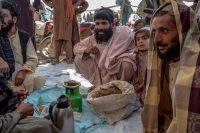
A flood of drugs from Afghanistan may become a bigger threat than terrorism
Pakistan and the United States have been trading accusations about who’s responsible for the collapse of the U.S.-backed government in Afghanistan. Yet as they bicker, both countries are ignoring one important consequence of the Taliban takeover: the coming boom in Afghanistan’s narcotic trade, which presents a major threat to global health. In the next few years, a flood of drugs from Afghanistan may become a bigger threat than terrorism.
The 20-year-long U.S. intervention failed to dismantle the narco-economy, which was the biggest source of funding for the insurgents. The Taliban has never made any mystery about its friendly relations with some well-known Afghan drug lords.… Seguir leyendo »







